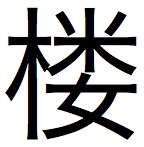Pages 15-45 complete. I’m in the middle of Chapter 3, and Watashi has just passed through the waterfall with the old man into his lab.
Earlier in the chapter, I was really impressed with some of Birnbaum’s work. Check out this passage:
“Nice fragrance,” I complimented her on her eau de cologne.
“Thanks,” she mouthed, doing the hood snaps up to right below my nose. Then over the hood came goggles. And there I was, all slicked up and nowhere to go—or so I thought.
That was when she pulled open the closet door, led me by the hand, and shoved me in. She turned on the light and pulled the door shut behind her. Inside, it was like any clothes closet—any clothes closet without clothes. Only coat hangers and mothballs. It probably wasn’t even a clothes closet. Otherwise, what reason could there be for me getting all mummied up and squeezed into a closet.” (20)
And the original:
「すごく良い匂いだね」と私は言った。オーデコロンのことを賞めたのだ。
<ありがとう>と言って、彼女は私のフードのスナップを鼻の下のところまでぱちんぱちんととめた。そしてフードの上からゴーグルをつけた。おかげで私は雨天用のミイラのような格好になってしまった。
それから彼女はクローゼットの扉のひとつを開け、私の手を引いてその中に押し込んでから中のライトを点け、後手でドアを閉めた。ドアの中は洋服だんすになっていた。洋服だんすとはいっても洋服の姿はなく、コート・ハンガーや防虫ボールがいくつかさがっているだけだ。たぶんこれはただの洋服だんすではなく、洋服だんすを装った秘密の通路か何かだろうと私は想像した。何故なら私が雨合羽を着せられて洋服だんすに押しこまれる意味なんて何もないからだ。 (38)
And my version closer to the original so non-Japanese-readers can see what’s up:
“You smell great,” I said, complimenting her perfume.
“Thanks,” she said and closed up the snaps on the hood to just below my nose. Then she put on the goggles over the hood. This turned me into a waterproof mummy.
Then she opened one of the closet doors, took my hand and pushed me inside, flipped on the light, and shut the door with her other hand. Inside it was a wardrobe. But there was no sign of any clothes, just hangers and mothballs. Maybe this isn’t a wardrobe, I thought, maybe it’s a secret passage disguised to look like a wardrobe. If it weren’t, I have no idea why she would suit me up in this ridiculous rain gear and force me inside.
Have you spotted the line I’m interested in? Of course it’s the mummy line. Birnbaum translates over it in that second paragraph, instead going with “all slicked up and nowhere to go” (which is a hilarious line). He then reincorporates the mummy aspect at the end of the third paragraph: “all mummied up” (another great line). I like the way the “mummied up” translation preserves the passive aspect of the original Japanese, but I imagine Jay Rubin might argue that it is the equivalent of the “passivication” of English: the pudgy cute girl is clearly the person who causes Watashi to be 押しこまれるd, and why shouldn’t that get represented in English?
Despite Birnbaum’s playfulness here with the English, I think Rubin wouldn’t mind using the mummy line in the third paragraph. I once heard him say “if you take something out, put something back in.” Or maybe he said “if you take something out, put it back in somewhere else.” Either quote seems to apply in this case.
(Oh, and a small sidenote. I used the asterisks to denote italics because I can’t italicize things in my blockquotes right now for some reason. I need to figure out how to mess with my CSS without imploding the blog, so lemme know if you have any thoughts on how I might do this. Initially the theme italicized everything in blockquotes, which was just ridiculous, but I figured out how to fix that. Update 2013/2/17: I think I fixed the italicized thing. Thanks Thomas!)




